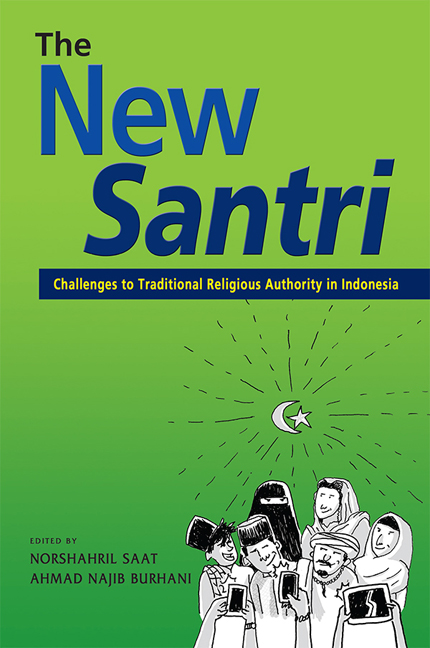12 - Pop and “True” Islam in Urban Pengajian: The Making of Religious Authority
Published online by Cambridge University Press: 24 November 2020
Summary
Introduction
After the fall of the New Order administration in 1998, a complex entanglement between communal piety, religious commodification, Islamic populism, and Islamism has occurred in many Indonesia's Islamic institutions. This happens mostly due to the shift among urban middle-class Muslims, from conformed religious expressions to transnational ideas of Islam resulting from the global market economy. These rapidly growing yet fluid groups have continuously attempted to pursue “true” Islamic identity. They have claimed for recognition of their identity to be the most appropriate one and promoted it to be the ideal socio-cultural identity for the whole nation.
The 1998 political transformation has fuelled Muslims’ public expression of identities—that includes ethnic, religious, and social class, as indicated in a rapid consumption and commodification of religious practices and observances—and the creation of religious identities, piety, Muslim pride, and brotherhood through the commerce of Western and local brands. Although these kinds of religious practices were excluded during the New Order era, it is increasingly politicized in the newly democratized and decentralized regional political sphere (Millie et al. 2014, p. 195; Fealy 2008, pp. 15–39; Lukens-Bull 2008, pp. 220–34).
Due to the desire of modern Muslims who find scripturalist Islam as a “dry” subject (Howell 2010, p. 1042), many religious activities nowadays are expressed and practised openly in the public sphere, including at the state-owned mosques and on television, in order to be more inclusive (Millie et al. 2014). However, several contemporary trending religious activities, such as urban pengajian (religious congregations in urban spaces), are frequently exclusive—attended by tens of participants and mostly located in houses of the participants alternately—and appear to challenge the traditional, moderate face of Indonesian Islam. Despite its exclusiveness, the materials and issues discussed in such pengajian touch upon global and local religious affairs.
Global Islamic revival in the last several decades has fragmented the traditional forms of religious authority, generated new figures of public piety, and created new public spaces in which Islamic teachings are constituted and contested (Hoesterey 2012, p. 38). This has become an underlying reason why Muslims across the globe are attracted to worldwide religious issues.
- Type
- Chapter
- Information
- The New SantriChallenges to Traditional Religious Authority in Indonesia, pp. 213 - 238Publisher: ISEAS–Yusof Ishak InstitutePrint publication year: 2020

